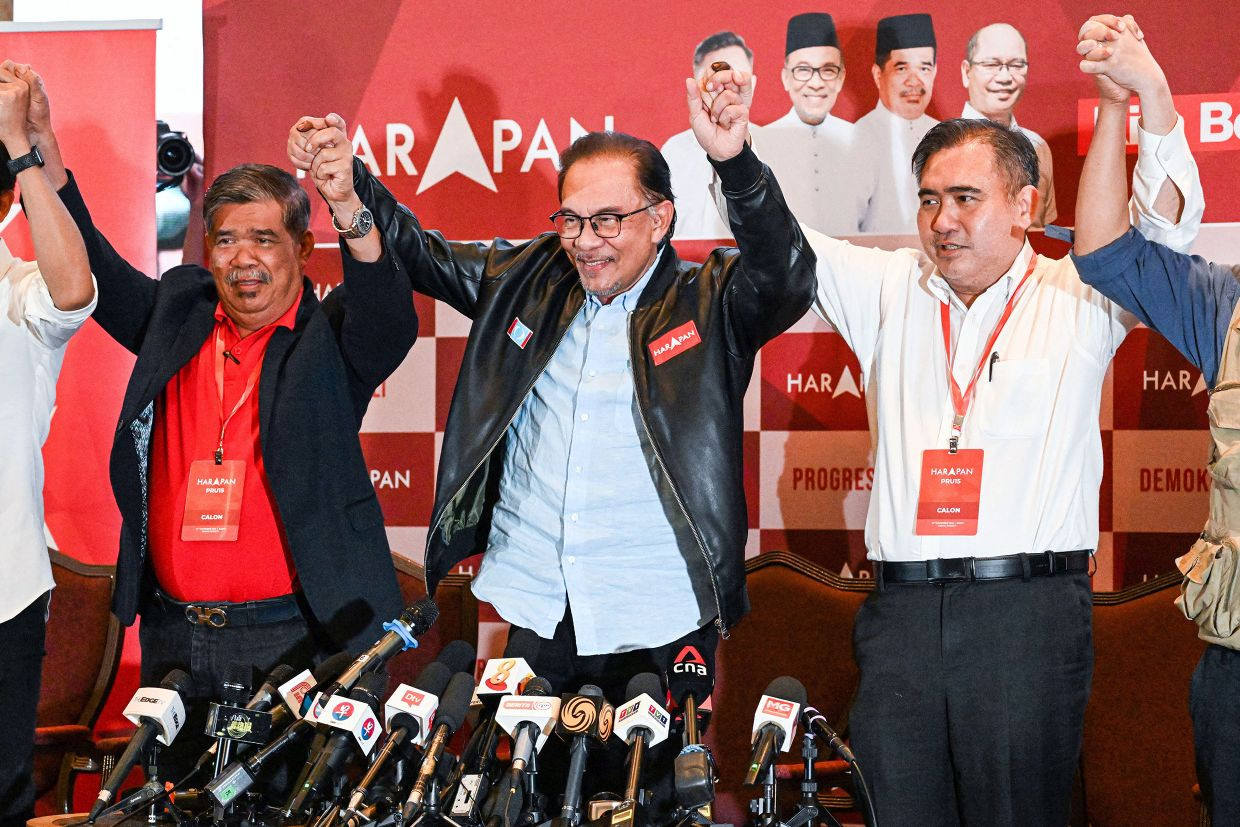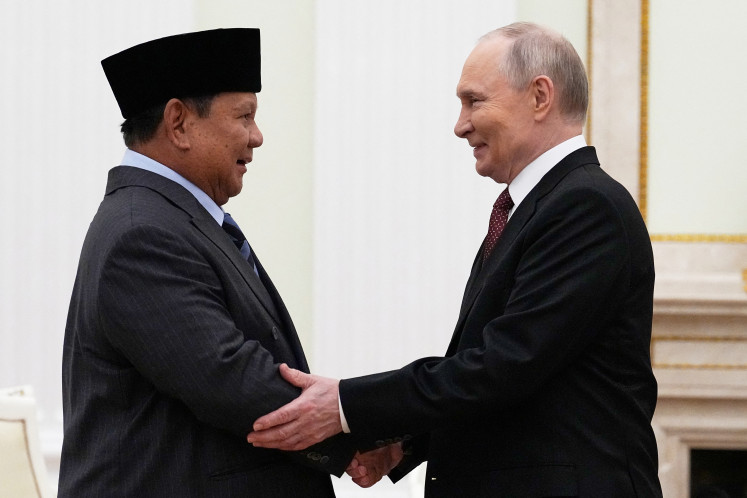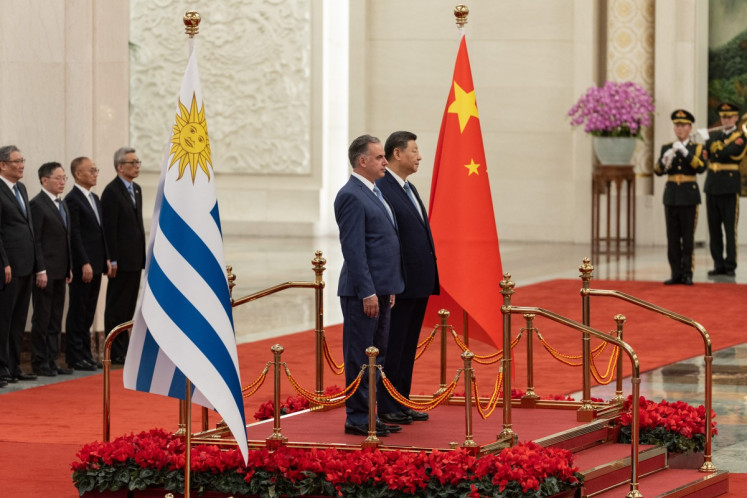Popular Reads
Top Results
Can't find what you're looking for?
View all search resultsPopular Reads
Top Results
Can't find what you're looking for?
View all search resultsUncertainty in Malaysia
The results of Saturday’s election showed that identity politics remained an effective tool to win the hearts and minds of voters, especially the majority Malay Muslims. Some observers even believe Malaysia is experiencing a surge of political Islam.
Change text size
Gift Premium Articles
to Anyone
M
alaysia’s 15th general election has resulted in a hung parliament, meaning no political party has enough seats to form a government. And even if a ruling coalition is formed, it will be very fragile. Whoever becomes prime minister will very likely to go the way of the three previous leaders, who ruled for just four years in total. The root of the problem is that Malaysia’s politics is mired in religious and ethnic tension.
The results of Saturday’s election showed that identity politics remained an effective tool to win the hearts and minds of voters, especially the majority Malay Muslims. Some observers even believe Malaysia is experiencing a surge of political Islam.
However, there are also signs of maturity among the voters. Changes in the typical will of voters could explain why the UMNO-led coalition, which dominated the country’s politics for 55 years until its collapse in 2018, flopped and former two-time prime minister Mahathir Mohamad failed to retain his seat.
The country’s constitution regards the Malay majority, who are also overwhelmingly Muslim, as first-class citizens and grants them privileges over other ethnic groups. Malaysians of Chinese and Indian descent are de jure second-class citizens but are well represented in the business world. Despite the state’s protection and other affirmative action, Malays have struggled to match the economic progress of these minority groups.
The elections were held one year earlier than scheduled because Prime Minister Ismail Sabri Yakoob called for them, confident his UMNO-led coalition Barisan Nasional (BN) would win a clear mandate and overcome the prolonged political instability besetting the country.
He was upbeat the coalition would reclaim its past glory and that Malays, who account for nearly 70 percent of the country’s 32.7 million people, would grant an overwhelming victory to BN. Fearmongering campaign tactics were rife, with warnings about the rise of Chinese- and Indian-Malaysian minority groups in politics, who make up 22.8 percent and 6.6 percent of the population, respectively.
Former prime minister Muhyiddin Yassin led his Perikatan Nasional coalition to 73 seats, still a far cry from the simple majority of 112 required to form a government. With the help of the opposition, Muhyiddin, a former UMNO politician, became prime minister in 2020 but only survived politically for about a year.
In August 2021, Muhyiddin was replaced by Ismail Sabri, but in just one year he had to dissolve parliament and call for early elections because of the fragility of his coalition.
Veteran opposition leader Anwar Ibrahim’s Pakatan Harapan coalition won the most parliamentary seats with 82. However, it will still be difficult for him to fulfill his long-time ambition of becoming prime minister, as his inclusive coalition is disliked by many Malays, who are afraid Malaysians of Chinese and Indian descent would seek to take their legal privileges away.
With some wheeling and dealing, Muhyiddin may be able to return for a second stint as prime minister, or Anwar may end his long wait for the top office. But whoever is sworn in as prime minister, Malaysian politics will remain volatile, and the country’s political uncertainty will carry on.











